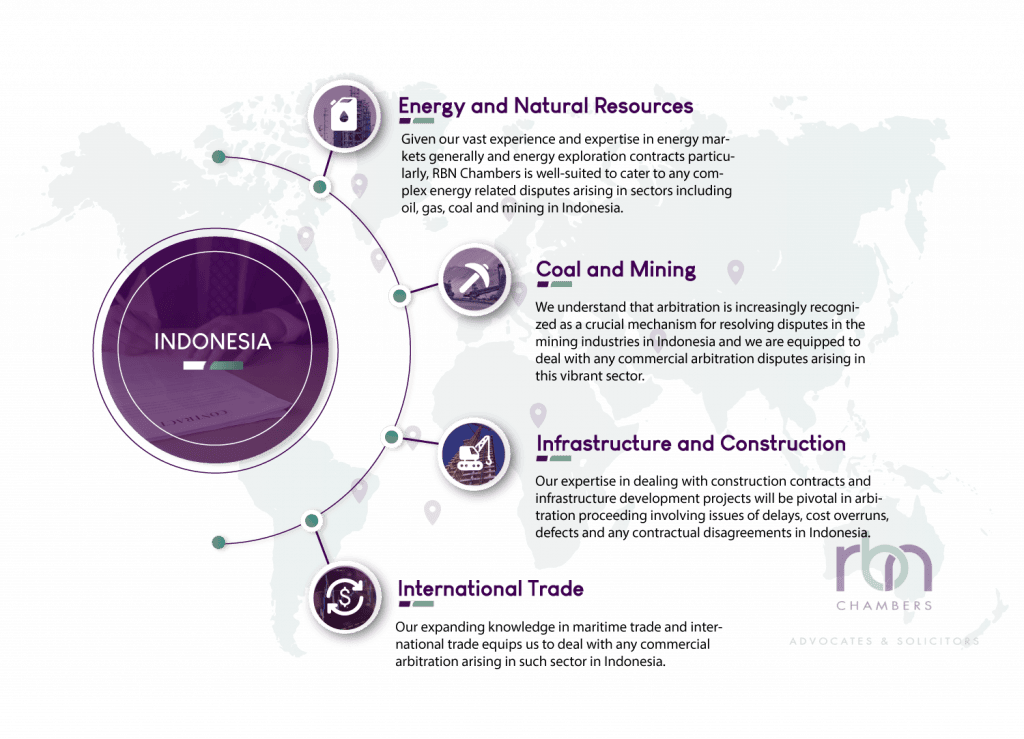Energy and Natural Resources
Indonesia's energy and natural resources industry, a cornerstone of its economy, boasts significant statistics: with over 2.41 billion barrels of proven oil reserves, 35.5 trillion cubic feet of natural gas reserves, and ranking as the world's largest exporter of thermal coal shipping out a record 505.4 million tons for 2023, the nation plays a pivotal role in global energy markets. The energy and natural resources sector in Indonesia frequently engages in arbitration in disputes over mining concessions, energy exploration contracts, and environmental regulations. The energy industry generally, with its global scope, diverse stakeholders and the volatile nature of the energy market is prone to highly complex legal disputes. These disputes are well suited to be resolved via arbitration as they often involve multinational companies operating in oil, gas, coal, and mining industries seeking resolution for contract breaches, investment disputes, or regulatory issues.


